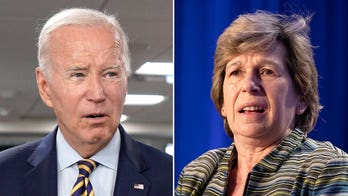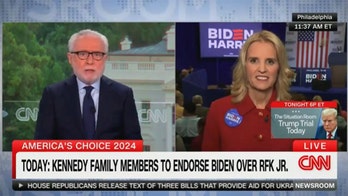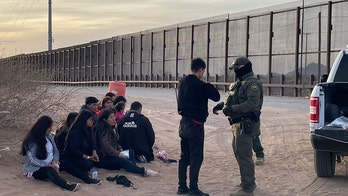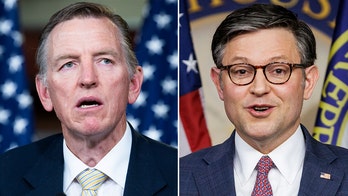COPENHAGEN -- - President Obama summoned his top commander in Afghanistan for a 25-minute meeting aboard Air Force One on Friday as part of his review of a war strategy that has divided the president's national security team.
Army Gen. Stanley McChrystal and Obama met just before the president returned to Washington from Copenhagen, where he was pitching the International Olympic Committee on Chicago's bid to host the 2016 games.
McChrystal had been in London, where he said in a speech Thursday that insurgents are gaining strength in Afghanistan and more troops are needed to "buy time" for the Afghan military and police forces to prepare to take control of the country in 2013.
He also rejected calls to scale down the war effort from defeating the Taliban insurgency to a narrower focus on hunting down Al Qaeda, an option suggested by Vice President Biden as part of the current White House strategy review.
"The short answer is: no," McChrystal said when asked if he would support scaling back the U.S. military presence, The New York Times reported.
"You have to navigate from where you are, not from where you wish to be," he said. "A strategy that does not leave Afghanistan in a stable position is probably a short-sighted strategy," the newspaper quoted him as saying.
A White House spokesman said the meeting between McChrystal and Obama was part of the ongoing discussion about Afghanistan and no decisions were made. The pair met in the president's cabin.
"The president wanted to take the opportunity to get together with Gen. McChrystal," spokesman Robert Gibbs told reporters aboard the presidential aircraft just before takeoff.
The meeting was the third conversation between the two since McChrystal disclosed in a television interview that aired Sunday that he had spoken with Obama only once since taking over the U.S. military efforts in Afghanistan. Obama tapped McChrystal in May to replace ousted Gen. David McKiernan.
Obama and McChrystal spoke on Wednesday before Obama convened a meeting later that day of his war council, which McChrystal joined by video conference. When Obama learned McChrystal would be in London, he asked him to meet him on the tarmac in Copenhagen after Obama made a last-minute pitch for Chicago's bid, Gibbs said.
Obama's strategy review was prompted in part by a critical assessment of the war effort that McChrystal sent him last month. He declared that the U.S. would fail to meet its objectives of causing irreparable damage to Taliban militants and their al-Qaida allies if the administration did not significantly increase American forces.
While the Pentagon has so far locked away specifics of McChrystal's troop request, he is widely believed to want to add between 30,000 and 40,000 to the current force of 68,000.
Wednesday's war council meeting, the second of at least five planned by Obama, exposed emerging fault lines within the administration over Afghanistan -- with military commanders pressing for more troops and other advisers expressing skepticism.
Secretary of State Hillary Clinton and special Afghan and Pakistan envoy Richard Holbrooke appeared to be leaning toward supporting a troop increase, while White House Chief of Staff Rahm Emanuel and Gen. James Jones, Obama's national security adviser, appeared to be skeptical of troop increases. Vice President Joe Biden also has been reluctant to support sending more troops, favoring a strategy that directly targets al-Qaida fighters who are believed to be hiding in Pakistan.
The assessment of divisions within Obama's inner circle came from a senior administration official who attended the meeting and spoke on the condition of anonymity, because the discussions were private.
Adm. Mike Mullen, chairman of the Joint Chiefs of Staff, and Gen. David Petraeus, the top commander for the wars in Iraq and Afghanistan, both support McChrystal's strategy. Defense Secretary Robert Gates has remained noncommittal.




